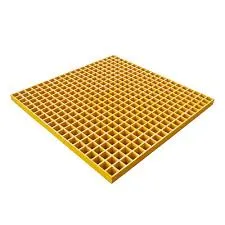
-
 Afrikaans
Afrikaans -
 Albanian
Albanian -
 Amharic
Amharic -
 Arabic
Arabic -
 Armenian
Armenian -
 Azerbaijani
Azerbaijani -
 Basque
Basque -
 Belarusian
Belarusian -
 Bengali
Bengali -
 Bosnian
Bosnian -
 Bulgarian
Bulgarian -
 Catalan
Catalan -
 Cebuano
Cebuano -
 China
China -
 China (Taiwan)
China (Taiwan) -
 Corsican
Corsican -
 Croatian
Croatian -
 Czech
Czech -
 Danish
Danish -
 Dutch
Dutch -
 English
English -
 Esperanto
Esperanto -
 Estonian
Estonian -
 Finnish
Finnish -
 French
French -
 Frisian
Frisian -
 Galician
Galician -
 Georgian
Georgian -
 German
German -
 Greek
Greek -
 Gujarati
Gujarati -
 Haitian Creole
Haitian Creole -
 hausa
hausa -
 hawaiian
hawaiian -
 Hebrew
Hebrew -
 Hindi
Hindi -
 Miao
Miao -
 Hungarian
Hungarian -
 Icelandic
Icelandic -
 igbo
igbo -
 Indonesian
Indonesian -
 irish
irish -
 Italian
Italian -
 Japanese
Japanese -
 Javanese
Javanese -
 Kannada
Kannada -
 kazakh
kazakh -
 Khmer
Khmer -
 Rwandese
Rwandese -
 Korean
Korean -
 Kurdish
Kurdish -
 Kyrgyz
Kyrgyz -
 Lao
Lao -
 Latin
Latin -
 Latvian
Latvian -
 Lithuanian
Lithuanian -
 Luxembourgish
Luxembourgish -
 Macedonian
Macedonian -
 Malgashi
Malgashi -
 Malay
Malay -
 Malayalam
Malayalam -
 Maltese
Maltese -
 Maori
Maori -
 Marathi
Marathi -
 Mongolian
Mongolian -
 Myanmar
Myanmar -
 Nepali
Nepali -
 Norwegian
Norwegian -
 Norwegian
Norwegian -
 Occitan
Occitan -
 Pashto
Pashto -
 Persian
Persian -
 Polish
Polish -
 Portuguese
Portuguese -
 Punjabi
Punjabi -
 Romanian
Romanian -
 Russian
Russian -
 Samoan
Samoan -
 Scottish Gaelic
Scottish Gaelic -
 Serbian
Serbian -
 Sesotho
Sesotho -
 Shona
Shona -
 Sindhi
Sindhi -
 Sinhala
Sinhala -
 Slovak
Slovak -
 Slovenian
Slovenian -
 Somali
Somali -
 Spanish
Spanish -
 Sundanese
Sundanese -
 Swahili
Swahili -
 Swedish
Swedish -
 Tagalog
Tagalog -
 Tajik
Tajik -
 Tamil
Tamil -
 Tatar
Tatar -
 Telugu
Telugu -
 Thai
Thai -
 Turkish
Turkish -
 Turkmen
Turkmen -
 Ukrainian
Ukrainian -
 Urdu
Urdu -
 Uighur
Uighur -
 Uzbek
Uzbek -
 Vietnamese
Vietnamese -
 Welsh
Welsh -
 Bantu
Bantu -
 Yiddish
Yiddish -
 Yoruba
Yoruba -
 Zulu
Zulu
fiberglass chemical product
The Role of Fiberglass Chemical Products in Modern Industry
Fiberglass, a composite material made from fine glass fibers, has revolutionized a multitude of industries through its remarkable properties, including strength, lightness, and resistance to corrosion. At the heart of this versatile material lies a range of fiberglass chemical products, essential for its production, enhancement, and application across various sectors.
Fiberglass is primarily produced through a combination of resin and glass fibers. The most commonly used resin types are polyester and epoxy. Polyester resins are known for their good strength-to-weight ratio and economic viability, making them a popular choice in applications such as automotive parts, marine components, and sporting goods. On the other hand, epoxy resins offer superior strength and heat resistance, making them ideal for high-performance applications, including aerospace and industrial components.
The production of fiberglass chemical products begins with the careful selection of raw materials. The quality of the glass fibers and resins directly influences the performance characteristics of the final product. For instance, high-quality E-glass fibers are often utilized due to their excellent mechanical properties and resistance to heat. When combined with appropriate resins, these fibers form a composite that can withstand significant stress and environmental exposure.
In addition to basic resin and fiber components, a variety of additives are used to enhance the performance of fiberglass products. These may include catalysts, accelerators, and fillers, each playing a critical role in the curing process and the overall utility of the finished product. Catalysts, for example, help speed up the curing of resins, ensuring a quicker turnaround time for production. Fillers can be added to reduce costs while maintaining structural integrity, a vital consideration for manufacturers operating within competitive markets.
fiberglass chemical product

Fiberglass chemical products also extend to surface treatments and coatings that improve the durability and aesthetic appeal of fiberglass parts. Gel coats are often applied to enhance the surface finish of molded fiberglass products, providing a smooth, attractive surface while also adding a layer of UV protection. This is particularly important in marine environments where exposure to sunlight and saltwater can degrade materials over time.
The applications of fiberglass chemical products are vast and varied. In construction, fiberglass reinforces concrete, enhancing its tensile strength and durability. In the automotive industry, lightweight fiberglass parts contribute to fuel efficiency without sacrificing performance. Moreover, in the realm of renewable energy, fiberglass is pivotal in the manufacturing of wind turbine blades, where its strength-to-weight ratio is crucial for optimal performance.
Moreover, fiberglass products are also recognized for their environmentally friendly characteristics. Unlike traditional materials, fiberglass can be designed to last longer, reducing the frequency of replacements and contributing to sustainability.
In conclusion, fiberglass chemical products are an indispensable part of modern industry, providing the necessary materials to create strong, lightweight, and durable structures. As technology advances, we can expect even more innovative applications for fiberglass, making it a material of choice for the future. Whether in construction, automotive design, or renewable energy, the significance of fiberglass will only continue to grow, ushering in new possibilities for enhanced performance and sustainability across multiple sectors.









